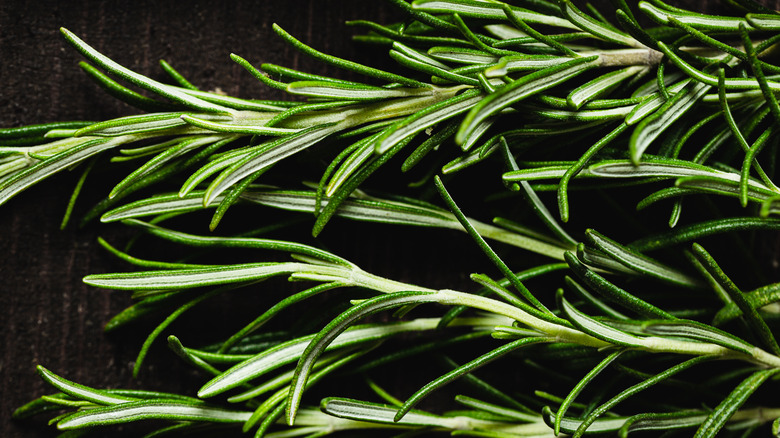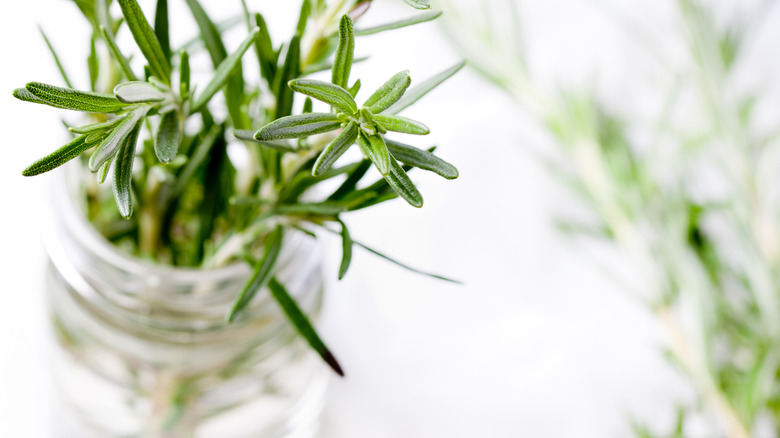Why You Should Store Fresh Rosemary In A Jar Of Water
Fresh herbs can add so much to a meal — or even a cocktail -– thanks to their distinct aromas and flavors, infusing our food and drinks with added dimension. Take rosemary, for example. These beautiful green sprigs make a delicious addition to anything from roast chicken to focaccia bread.
The tricky thing about rosemary — and many of its herbaceous cousins — is that it tends to wilt or turn brown fairly quickly if you don't store it properly. Proper storage ensures the herbs have enough moisture to stay fresh for a long time and prevents them from getting too damp, which can cause mold and decay. Plus, it avoids overexposure to oxygen or light, which can damage and brown the leaves.
While you can dry fresh herbs or freeze them, to keep fresh rosemary on hand, placing it inside a jar of water is highly recommended. Storing your fresh rosemary this way accomplishes everything needed to maximize the freshness and shelf life of the herb. That said, we've got a few extra tips to help you achieve the best results.
How to properly store rosemary in a jar of water
As long as you approach storing the herbs properly, the jar of water method will keep rosemary fresh for twice as long as storing it in a plastic bag. The first step is to rinse the rosemary to remove any excess dirt or unwanted pests and thoroughly pat the sprigs dry.
Next, trim the bottom of the stems; they tend to seal up after the rosemary is harvested. Giving them a fresh cut will help ensure the herbs can absorb the water properly. Place the rosemary in a glass jar, standing upright in about an inch or so of water, and cover the top with plastic — but not too tight. The herbs need room to breathe.
Keep an eye on your fresh rosemary; when the water level starts to decrease or changes color, replace it with some clean water. Using this storage method, the rosemary will stay fresh for two to three weeks on the countertop and up to four weeks in the fridge.
Cooking with fresh rosemary
Now that you know your fresh rosemary will stay nice and fresh for a while, we've got some tips or ideas about how to put this unique herb to use in the kitchen. You can add rosemary to a variety of recipes by stripping and chopping the leaves or keeping the entire sprig intact.
Because rosemary is such a sturdy herb, it stands up well to heat and works wonderfully when integrated into a recipe early. More delicate fresh herbs, like basil or cilantro, wilt or lose flavor if cooked too long. This makes rosemary a great addition to numerous meat dishes, whether in a rub for beef or lamb, as a seasoning for roast chicken, or as part of a basting liquid, braise, or stew.
Rosemary's flavor also pairs wonderfully with root vegetables like potatoes, carrots, and beets and in savory vegetarian dishes like our rosemary and olive frittata. This ingredient adds a depth of flavor to baked breads like warm rolls or focaccia. It's delicious when used to infuse flavor and freshness into a fatty ingredient like olive oil, butter, or cheese — and it's even a fantastic ingredient in cocktails! For best results, choose spirits like gin, vodka, or bourbon.



